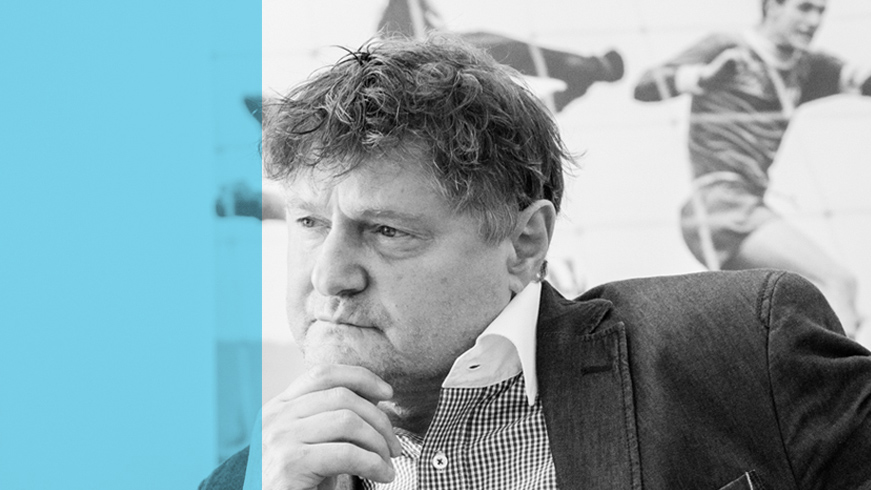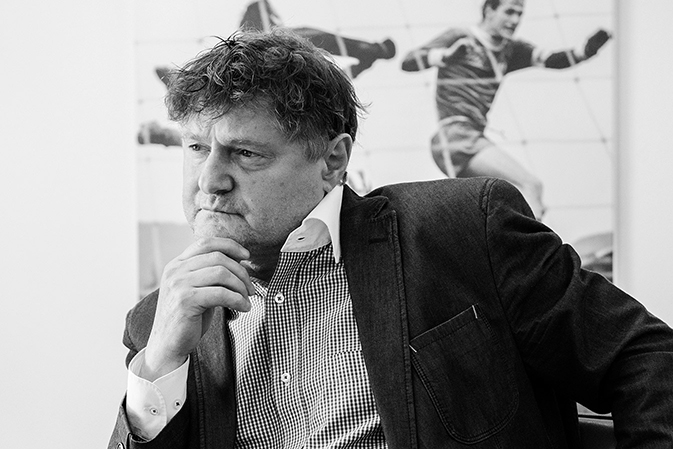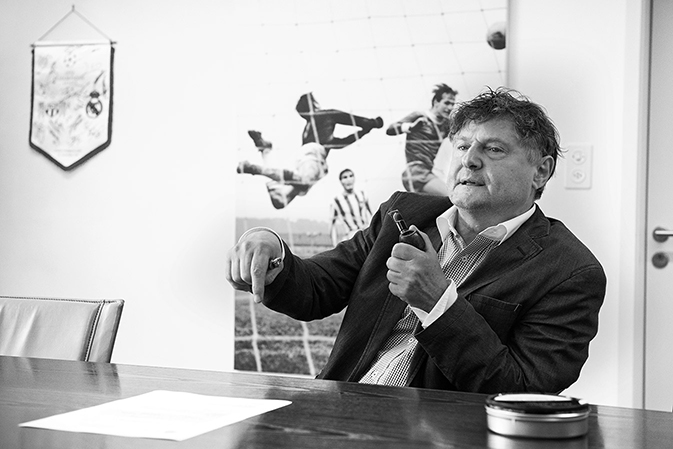FC Zurich also sells many fewer season’s tickets than, say, FC Basel. Why is this?
The Zurich audience is very demanding, and apart from FCZ we also have a second football club in the first league with GC. But it’s true, I feel sad when I look at Basel or Berne. In the Champions League against Real Madrid we had requests for more than 200 000 tickets, and more than 100 000 against FC Bayern Munich. But when we play against FC Thun, and this is not meant to denigrate FC Thun, only a few thousand people want to see the game. FC Basel, in contrast, also have 28 000 people in the stadium watching a home game against FC Thun. We sell between 6000 and 7000 season’s tickets, but Basel sells 25 000. This is the big difference.
Seen against your professional background as a member of the Executive Board of Ernst & Young: what do you think are the ingredients for entrepreneurial success?
The most important things are the quality of your staff and management, in particular second- and third-level management. While I was at Ernst & Young and also while participating in numerous projects, I noticed that it always depends on the people. Specifically in the SME sector, the quality of the management team is decisive. I met many excellent managers in my time there. Identification with the company, the employees and the products in the SME sector is impressive. But when managers only feel like employees and don’t put much passion into the business, the results are less good.
Companies spend much time identifying the needs of their customers. Is this also true for a football club?
Yes, this is particularly true for a football club. We’re in the public eye every day with everything we do or don’t do. We also play every weekend and have to prove our ability to perform every weekend. Companies listed on the stock exchange publish their figures and results once every quarter, and in between they are more or less left in peace. A professional football club is never left in peace and is always the centre of attention. Of course, we want and need the public to support our work and our success, but this situation doesn’t make daily business any easier. There are also projects that need to mature quietly and shouldn’t be exposed to the limelight. The needs of the customers are the central theme in everything we do — whether this concerns the battle about standing room at Letzigrund, transfers that may not be well received by the public, or the prices of tickets.
What links or similarities between a football club, an auditing company and an insurance company can you think of?
It’s difficult to compare a football club to an auditing company or an insurance company. The differences with regard to predictability, public relevance, framework conditions and positioning are simply too big. Auditing and insurance, however, share one feature: both provide a service. The big difference lies in the fact that an auditor can basically only charge the hours that he has worked, while the insurance company can earn money not only on its services, but also on the capital markets.
If a football club signs a top player, the insurance aspects usually don’t take centre stage, or at least not in the media. Behind the scenes, however, what insurance aspects are important?
Insurance issues are very important, not only for transfers but in general. FCZ pays insurance premiums running into seven figures, with the focus falling on accident insurance. The risk of a player being injured is relatively high and an operation and the subsequent rehabilitation phase can be very expensive. FCZ has taken out insurance cover for this. To this must be added the supplementary insurance cover taken out by the individual players. We always encourage our players to look into all aspects of insurance. To this end we also work with professional insurance experts. We’re also active in the field of retirement provision and try to encourage the players to think about this at an early stage. But we mustn’t forget that many of our players are very young — and retirement provision isn’t really important to a 20-year old. This is also true for other professions.
So the risk of injury takes centre stage. Are there other insurance aspects that also play a role?
From a business point of view, injuries preventing a player from playing are also a risk with regard to possible transfers. As I mentioned before, transfers are an important source of income. If things go well and a player is successful, more money can be earned on a transfer. If a player cannot play for a while because he’s injured, the salary payments are insured but in a worst case scenario his transfer value could drop to zero. The transfer values can, of course, also be insured, for example with Lloyds in London, but the premiums are horrendously high.
How does employee benefits insurance work for a professional footballer?
As for all other employees: the contributions are deducted from their salaries.
For foreign players, too?
Yes, even if most of them only live in Switzerland for a few years and aren’t particularly interested in the employee benefits rules that apply here.
With what pension fund are the «other» employees of FC Zurich insured?
All club employees, including the active players, are insured with the same pension fund.



